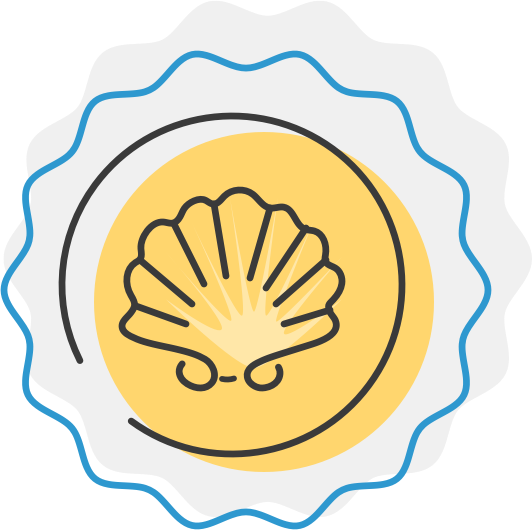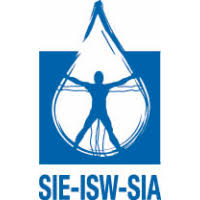
Global Youth Take Action 2nd edition
Description
Following the tremendous impact of the 9 projects supported through the Global Youth Take Action call for projects held in 2020, the International Secretariat for Water (ISW) is launching the 2nd edition of the Global Youth Take Action call for projects on the Youth for Water and Climate platform.
Over the last year, the COVID-19 pandemic has highlighted inequalities worldwide regarding access to water, sanitation, and hygiene services and the capacity of vulnerable populations to respond to a global health emergency (2019 JMP Report, OMS/UNICEF). However, the increasing need for water to comply with hygiene recommendations coincides with the increasing unreliability of water supply partially caused by the impacts of climate change (World Meteorological Organization (WMO), 2020; UN News, 2020). Now, 2.3 billion people or about 30 % of the world population live in a water-stressed country (UN WATER, 2021). The need for water is increasing by 1% yearly. At this rate, the proportion of the population suffering from water insecurity should reach 52 % by 2050, particularly affecting the most vulnerable and marginalized populations particularly. (EIU, 2021)
Water-related challenges are mainly caused by water shortage, water excess and poor water quality which are exuberating by climate change impact, population growth and rising living standards (EIU, 2021). Although ensuring reliable access to safe drinking water is necessary, these efforts go hand in hand with water conservation measures and climate actions (UN News, 2020).
This unprecedented global challenge has emphasized the vital importance of integrated and sustainable water resources management.
All over the world, youth are stepping up and mobilizing to lend a helping hand to those most in need by proposing inspiring, creative, and innovative ideas. More than ever, it is vital to support young people who are engaged and empowered for achieving water security. Through their actions, young people have shown that they are unified across disciplines and scales to understand, innovate, and adapt to the complex and dynamic nature of water security and governance.
This call for projects has been designed to identify, encourage, and support youth engagement related to water resources management and climate change adaptation. More specifically this call for projects aims to support initiatives regarding water & health, water & agriculture, water-related risks, and water sharing working towards Sustainable Development Goals (SDG) 6 and 13.
This call for project proposals is made possible thanks to the collaboration and the contributions of the Global World Partnership (GWP), the Swiss Agency for Development and Cooperationt (DDC), the Agence de l’eau Artois-Picardie (AEAP) and of Montréal International which will enable youth from around the world to access financial support to help implement innovative and creative water management projects.
This 2nd edition of the Global Youth Take Action call for projects is also supported by Her2O, the World Youth Parliament for Water, Red de Jovenes Por el Agua Paraguay and CAY4W who will contribute to youth mobilisation & capacity building.
Objective
The main objective of this call for projects is to support the implementation of youth-led initiatives related to sustainable water resources management and climate change adaptation and to enhance the young leaders’ capacities as actors of change in the water and climate sector.
Themes
The call for projects is structured around 4 main interlinked themes all related to water resources management and climate change.
Admissible projects must cover one or several of these themes:
- Water and health: Water, sanitation, and hygiene (WASH) emergency response, good sanitation and hygiene habits to protect their health, (e.g., health and water campaigns), water-borne diseases solutions, water availability, quality, and quantity for domestic uses, low-cost technology to ensure safe water quality, implementation and monitoring of sustainable sanitation systems, etc.
- Water and agriculture: can be related to food safety, irrigation, drought issues, rainwater harvesting, stormwater management for irrigation, adaptation, and management of variation in precipitation, low-cost technologies regarding agriculture and irrigation, sustainable agriculture practices, etc.
- Water-related risks: can be related to climate change risk management, climate change adaptation plan, recovery, and response to natural disasters such as storms, floods, and drought, etc.
- Sharing water: can be related to transboundary cooperation, watershed management, water & peace, sharing water between different needs (domestic, agricultural, industrial), sharing a source of water between villages and industries, integrated water resources management, etc.
Eligibility
To be eligible, participants and their project must correspond to the following criteria:
- The project or project leaders cannot have received financial and technical support through a previous YWC call for projects.
- The project must be conceived, led and implemented by youth aged between 18 and 35;
- Project implementation must respect local public health rules and regulations regarding the current pandemic and must not increase the level of risks for project leaders and communities;
- Project leaders must have project management experience;
- Project leaders from every part of the world are eligible;
- Projects from low- and middle-income countries, projects targeting indigenous communities, projects led by young women and projects targeting women will be prioritized;
- The project must be sustainable; projects tackling socio-economic as well as environmental challenges will be prioritized;
- The project must address at least one of the four themes;
- Youth participation must be included across all aspects of the project;
- Projects must have a direct local impact on vulnerable communities;
- Can be a new or ongoing project;
- The project can be submitted in French, English, Russian or Spanish;
- The project leaders must be fluent in French, English, Russian or Spanish.
How to apply
1) Prepare a short project presentation video (max. 3 minutes) in which must clearly state the following five main points to which you must respond positively:
- Youth inclusion and leadership: Is the project conceived, led and implemented by young people? Is youth participation included across all aspects of the project? Are women and/or indigenous communities involved in the project?
- Relevance of the problem: What is the problem that you are tackling? What is the link between the problem and the water and climate nexus? Which is the chosen community to tackle this problem? How relevant is the issue in the chosen community? Does the problem impact vulnerable communities?
- Relevance of the solution: What is the solution that you are offering? What is the project title? Does the project appear meaningful in terms of issues to be addressed and could it achieve real change? What are the project objectives?
- Innovation: Does the project have ‘thinking outside the box’ elements? Is the project multidisciplinary in nature?
- Local partnership and multi-stakeholder integration: Do the project consider stakeholders’ and actors’ involvement?
- Finance: Is the project financially feasible?
- Implementation: How practical is the implementation of the project? Does the implementation plan appear credible and adapted to the ambitions set out for the project? Does the implementation plan respect local public health rules and regulations regarding the current pandemic?
- Sustainability: How sustainable is the project and its ability for future adaptation? Is the project environmentally friendly? Is it possible to upscale or replicate the project? Which Sustainable Development Goals (SDG) are impacted by the project?
IMPORTANT: In this video, you must clearly demonstrate that this project is conceived, led and implemented by young people aged between 18 and 35.
2) Upload your video on YouTube
To facilitate the video transmission, we ask that you upload your presentation video on YouTube. This video can be private (unlisted). Only people who have the link to the video will be able to see it. It does not appear in any public area of YouTube such as search results, your channel, or the navigation page.
For more information on how to upload your video on YouTube, click here.
Tips for the video
– Be clear and concise!
– Be dynamic and convince us that this project will have an impact and can be implemented.
– The technical video quality is of no importance, we simply want to clearly hear what you have to say.
3) Visit the Youth for Water and Climate platform to submit your project online. Follow the Submit a project steps!
The call is open from June 1st, 2021 to June 30th, 2021.
Selection criteria
A jury will review the project’s proposals. The proposals will be assessed and scored according to a scoring grid based on the Quality Assurance framework & criteria of the platform. Please refer to the LEARN section of the website to find out more about what makes project proposals strong.
Gender and regional balance will be considered in the final selection of projects. At least 50% of the supported projects will be led by young women or directly benefitting young women.
Contact information
We will be holding a Facebook live on the Youth for Water and Climate (YWC) page in Spanish, English, Russian and French to answer any questions youth may have related to the call:
- English: June 8th at 1 pm GMT
- French: June 9th at 1 pm GMT
- Spanish: June 14th at 6:30 pm GMT
- Russian: June 16th
Should you need additional information please contact: Élysa Vaillancourt, ISW Youth Project Manager: evaillancourt@sie-isw.org
Timeline
Submission deadline – June 30th, 2021
The announcement of the results to the project leaders will be approximately three weeks following the submission deadline. Only selected participants will be contacted.
Following the announcement, the semi-finalist project leaders will be asked to submit a complete project plan including a detailed budget, logic model and calendar of activities.
Projects must be completed by December 2021. Financial and operational reports will need to be submitted at different stages of the project (mid-project & end of phase reports).
Prize & Incentives
The selected projects will receive financial support up to 5000 $ CA each and technical support.
The financial support can cover the following expenses: Costs of purchasing material or services directly related to the project. This includes transportation, supplies and equipment specifically for the project, experts, and services (other than labour cost of lead applicant and collaborators).
Selected projects will also be featured on the YWC platform for additional visibility.
Call for proposals in other languages
English >> You will find the necessary details and documents for the call for projects on this link.
Français >> Vous trouverez les détails et les documents nécessaires pour l’appel à projets sur ce lien.
Español >> En este enlace encontrará los detalles y documentos necesarios para la convocatoria de proyectos.
Русский >> По этой ссылке Вы найдете необходимую информацию и документы для конкурса проектов.



